How to Write a Personal Statement

What is a personal statement?
Your university personal statement is an important part of your undergraduate application. This is your chance to tell universities why you're the right student for them. Tell us about your skills, experiences and extracurricular activities, what excites you about your chosen field of study and what your ambitions are for the future.
Our top tips
Show us that you're...
Committed. Throughout your personal statement you should show that you’re committed to the course you’re applying for and that you have the maturity, skills and experience to thrive at university.
Inquisitive. Tell us about your interests and activities beyond the realms of your chosen study area.
Attentive. Make sure your personal statement is clearly structured and easy to read. Don't worry about using elaborate language and keep sentences short. Remember to proofread your personal statement for spelling and grammar mistakes and ask friends or family to check it for you too.
Applying for 2026 entry?
The personal statement format will be changing for students applying to university for 2026 entry. Find out what is changing and how you can be prepared for the new personal statement format.
What should a personal statement include?
Personal statements with a clearly defined structure are not only more understandable and compelling but also easier to write. Use the following three section approach to structure your personal statement:
Part 1
Explain why you are making the application (30-50%)
Start your personal statement by telling us why you're applying to study your chosen subject at degree level. We want to see your enthusiasm for the subject and evidence that you've thought deeply about your choices. You might refer to personal experiences in your life, courses you've attended, or how your own character traits would make you a suitable applicant. You could also mention your career goals, particularly if they are relevant to the subject you're applying for.
Part 2
Highlight your academic experience, knowledge and abilities (25-35%)
Here you should highlight which areas of your academic studies you find especially interesting and that are relevant to your application. Tell us about any wider reading or experiences that go beyond your regular studies. Describe any work placements within your field of interest as this demonstrates real commitment and initiative.
Part 3
Summarise your extracurricular interests and skills (20-30%)
The final few paragraphs of your personal statement should focus on your activities beyond academic study. Here you can indicate valued skills and qualities you have to offer, e.g. time management, organisation, leadership, communication skills or teamwork.
End your personal statement by summarising the key points you've already written about and remind the reader why you should be offered a place on your chosen course.
How long should a personal statement be?
UCAS personal statements are a maximum length of 4,000 characters or 47 lines of text. That’s approximately two pages and about four to five paragraphs.
How should it look?
UCAS will strip out all fancy formatting like bold, indents and tabs so don’t worry about doing those things. All you need is blank lines in between paragraphs to make it easy to read.
Remember what you've written
Anything you say in your personal statement is likely to be brought up if you have an interview, so it's important to be honest and not exaggerate. And remember to keep a copy of your statement to re-read beforehand.
Application support events
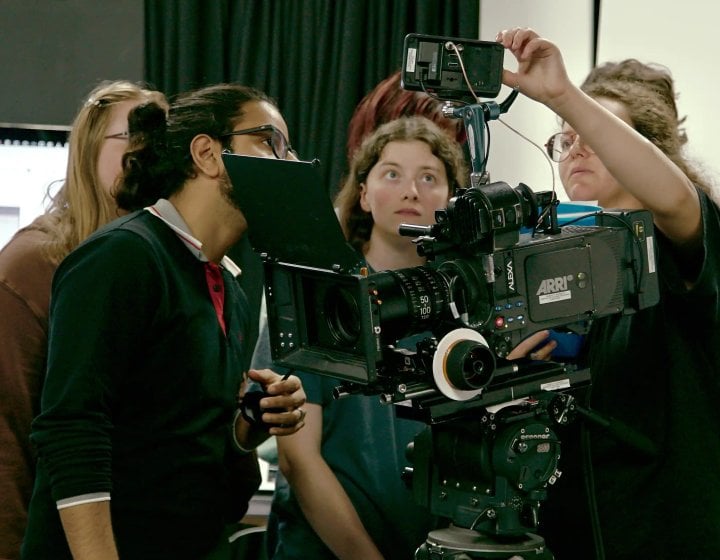
Tue 03 Mar 2026
13:00 - 14:00
MA Feature Filmmaking | Course Overview & Live Q&A
Online
Discover everything you need to know about MA Feature Filmmaking at Falmouth University.
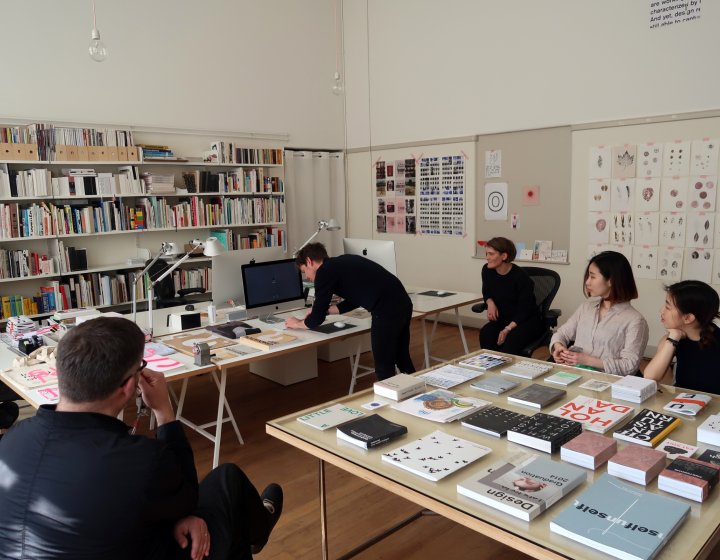
Tue 03 Mar 2026
13:00 - 14:00
MA Communication Design | Course Overview
Online
In the session we will explore what you will learn on the course, and how study works at Falmouth. W...

Tue 03 Mar 2026
17:00 - 18:00
Student Accommodation at Falmouth | Webinar
Online
Join us to go through the process of applying for undergraduate accommodation for September 2025.

Wed 04 Mar 2026
12:30 - 13:30
MA Film & Television Course Overview and Q&A
Online
Discover everything you need to know about MA Film & Television with Falmouth University.
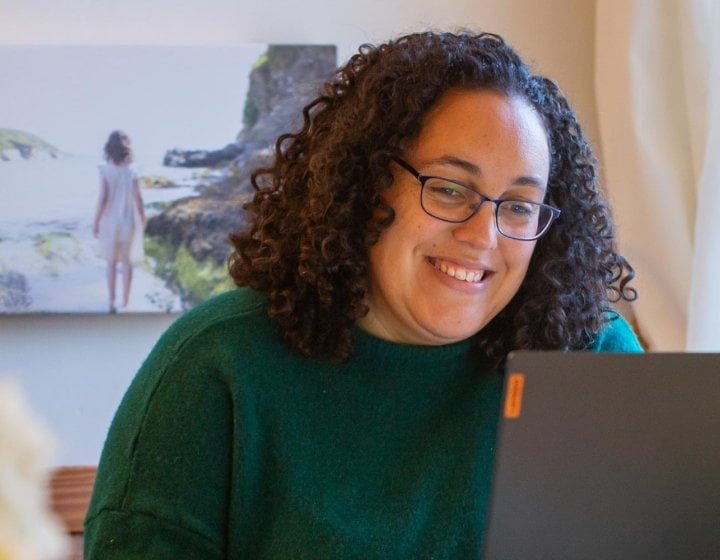
Thu 05 Mar 2026
12:00 - 13:00
MA Graphic Design (Online) Course Overview and Live Q&A
Online
Discover everything you need to know about our part-time, MA Graphic Design (Online) degree at Falmo...

Illustration BA(Hons) (Online) in-person event
Thu 05 Mar 2026
14:00 - 15:00
MA Illustration: Authorial Practice Course Overview and Q&A
Online
Discover everything you need to know about our Postgraduate Illustration: Authorial Practice MA at F...
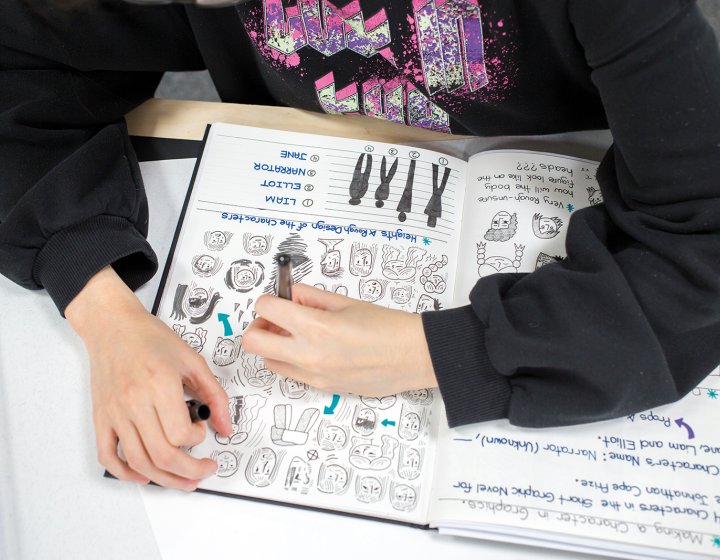
Mon 09 Mar 2026
13:00 - 14:00
MA Illustration (Online) Course Overview and Live Q&A
Online
Discover everything you need to know about Illustration MA(Online) at Falmouth University.
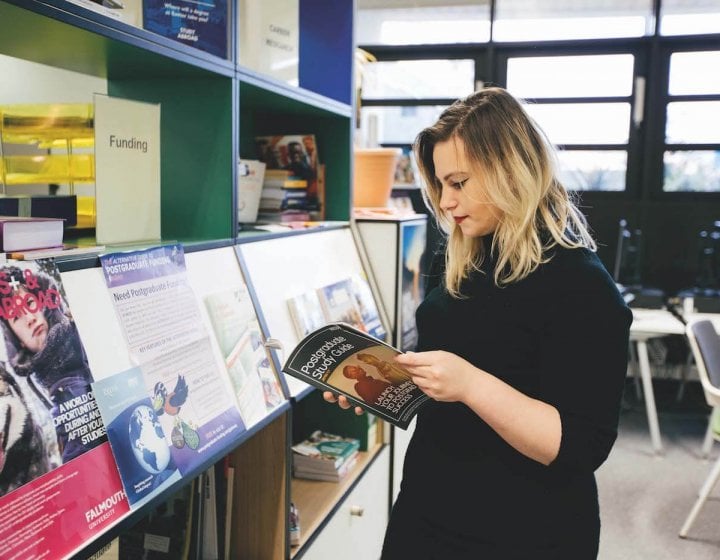
Wed 11 Mar 2026
10:00 - 11:00
MA Spatial Design Course Overview & Q&A
Online
Discover everything you need to know about our Postgraduate Creative Advertising MA at Falmouth Univ...

Credit: Oma Okolo, based in London
Wed 11 Mar 2026
12:00 - 13:00
MA Fine Art (Online) Course Overview & Live Q&A
Online
Discover everything you need to know about MA Fine Art (Online) at Falmouth University.

Wed 11 Mar 2026
12:30 - 13:30
MA Prosthetic Effects Course Overview and Live Q&A
Online
Discover everything you need to know about MA Prosthetic Effects at Falmouth University.
You might also like
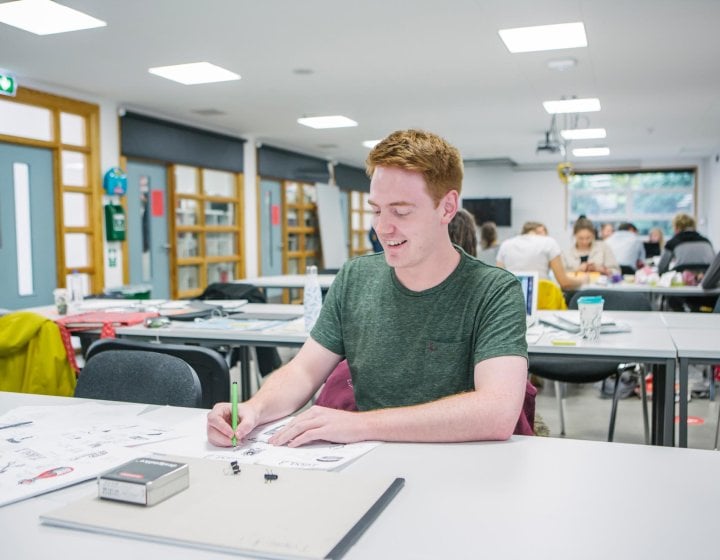
Preparing for Your Interview
Interviews are your chance to connect with our academic team, talk about your work and get supportiv...

Portfolio Advice
What is a university portfolio and how do you make one? Read our guide.
Any questions?
If you need to speak to someone about your university application then you can get in touch on the details below:
